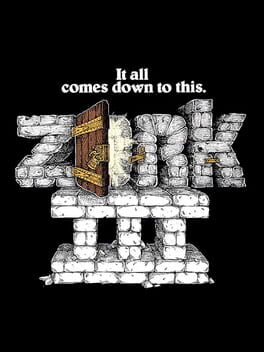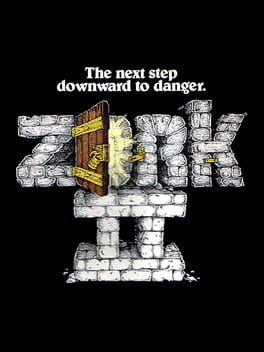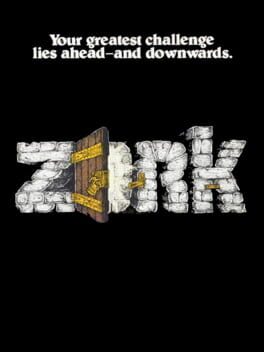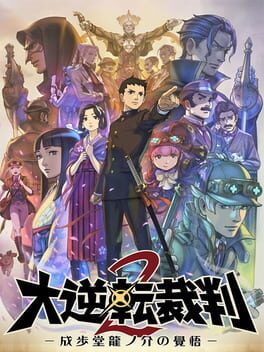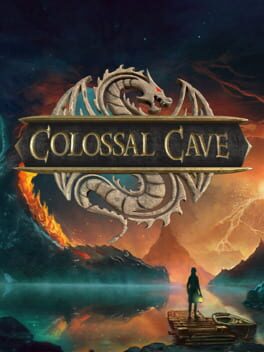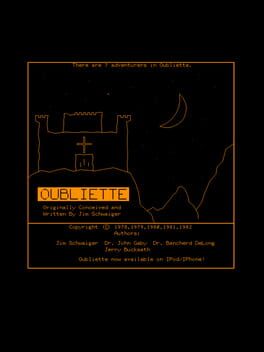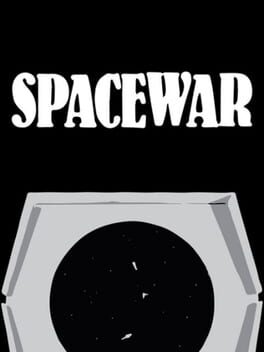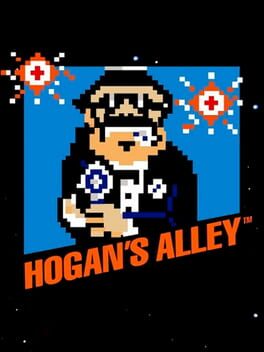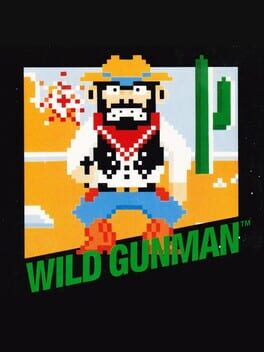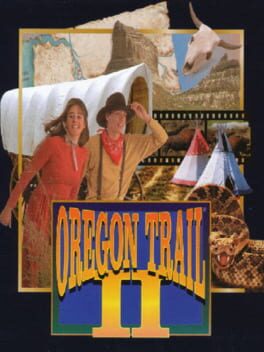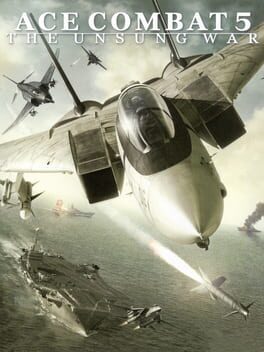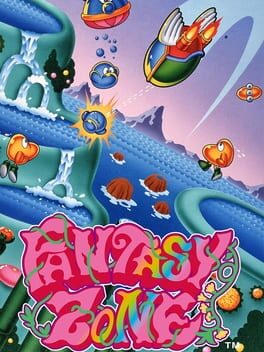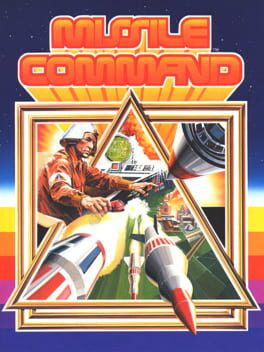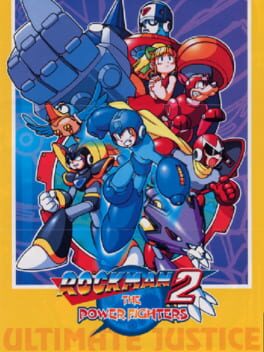DeviousJinjo
Zork 3 is, as we say in the business, "a huge bastard."
It's easy to tell that most of the game consists of puzzles that were cut from everything else because they were too tedious for primetime in the earlier games. Zork 3 is, pretty clearly, the leftovers. In saying this, I don't necessarily mean that the puzzles are bad, they're just huge, and difficult, and there isn't much in between them. Frankly, Zork 2 is the one with the bad puzzles, it's just that none of them are as involved or as time consuming as the ones in Zork 3.
Zork 3 feels very much like the Final Dungeon of Zork. It's no-nonsense (or less-nonsense, at least), it's hitting you with the big guns, and it's not going to waste any more time with funny wizards. Personally not my favorite, but a suitable finale.
It's easy to tell that most of the game consists of puzzles that were cut from everything else because they were too tedious for primetime in the earlier games. Zork 3 is, pretty clearly, the leftovers. In saying this, I don't necessarily mean that the puzzles are bad, they're just huge, and difficult, and there isn't much in between them. Frankly, Zork 2 is the one with the bad puzzles, it's just that none of them are as involved or as time consuming as the ones in Zork 3.
Zork 3 feels very much like the Final Dungeon of Zork. It's no-nonsense (or less-nonsense, at least), it's hitting you with the big guns, and it's not going to waste any more time with funny wizards. Personally not my favorite, but a suitable finale.
Zork 2 is significantly more inspired than Zork 1, and pretty much for that exact reason, it's also a lot more frustrating.
It's clear that by the time they got to the Zork 2 content, they'd gotten their impulses to remake Colossal Cave Adventure out of their system and were now trying out newer, grander ideas. As a result, Zork 2 is a lot more memorable to someone who played Colossal Cave first, though even significantly moreso than in Zork 1, I am perfectly happy to have used a walkthrough. Zork 2 is a lot more finnicky and particular because it's also more ambitious, and that is the finger trap in which the entire text adventure genre found itself, almost instantaneously. It is the curse which dooms the entirely text-driven video game forevermore. Realizing something truly ambitious and intuitive and flexible and modern in the genre would require so many manhours that it would defeat the point of such a format. It is NOT work that could be outsourced to any AI, even one more much more sophisticated than what currently exists, because that would remove the author's touch, and the author's touch is the whole point.
Anyway, on to Zork 3.
It's clear that by the time they got to the Zork 2 content, they'd gotten their impulses to remake Colossal Cave Adventure out of their system and were now trying out newer, grander ideas. As a result, Zork 2 is a lot more memorable to someone who played Colossal Cave first, though even significantly moreso than in Zork 1, I am perfectly happy to have used a walkthrough. Zork 2 is a lot more finnicky and particular because it's also more ambitious, and that is the finger trap in which the entire text adventure genre found itself, almost instantaneously. It is the curse which dooms the entirely text-driven video game forevermore. Realizing something truly ambitious and intuitive and flexible and modern in the genre would require so many manhours that it would defeat the point of such a format. It is NOT work that could be outsourced to any AI, even one more much more sophisticated than what currently exists, because that would remove the author's touch, and the author's touch is the whole point.
Anyway, on to Zork 3.
1977
I wish that I could tell you that Zork is anywhere near the gigantic leap in the history of computer games that much of the world seems to think it is, but I've played Colossal Cave, or Adventure, or Colossal Cave Adventure, or The-Game-That-Did-Most-Of-This-Immediately-Before-Zork. That said, I should admit that prior to now, I'd been selling Zork short. It definitely IS meaningfully different from its predecessor and stands in its own right as one of gaming's critical progenitors.
Zork, unlike Colossal Cave, is not limited to a two or three word text parser and doesn't reduce most item-based verbs down to the word "use." You can even ask it questions, such as "What is a grue?" This is, in my somewhat controversial opinion, both positive and negative. Colossal Cave's limitations force a certain simplicity onto the player's interactions with the world. The player can intuit pretty quickly what sorts of things they can do, and how those commands must be formatted. Zork introduces more complexity, which in my previously more pessimistic read translated to more confusion and a greater tendency toward misinterpretation. The English language is a hot, filthy mess, and given the choice between an ultra-primitive computer program attempting to wrangle that mess in all its complexity like Zork does, and a slightly more primitive program constructing its own clearer, more simplistic language, I, as a 21st century player, am actually inclined to choose the latter.
Having finished Zork 1, I mostly stand by this preference, but I have found the appeal in Zork's more advanced parsing. While it may be more frustrating or overwhelming at times, there's something to be said for the mystery provided by that wider possibility space. The options on any given "screen" of Zork are less apparent, and that can lead to greater creativity on the part of the player. It's exciting to come up with a course of action that would be outside the capabilities of Colossal Cave and see it play out. It's also all the more likely that you'll encounter some generic error text, because the more flexibility you introduce here, the more ridiculous edge cases you burden the author with responding to. If an input produces nothing, it provokes disappointment. If the author tries to respond to every single potential input, it exhausts sanity. In other regards, however, it's an important quality of life improvement. In Zork you don't have to type "get sack" and THEN "get bottle", you can type a single line: "get sack and bottle." More importantly, upon closer inspection I've found that Zork 1 never ACTUALLY demands much complexity of the player at all... it's more just the threat of it that had me digging in my heels. Zork's difficulty has much more to do with its sense of humor and its classic moon logic than anything else, though a more limited option set certainly does help one feel their way out of such things more easily. Colossal Cave has a giant snake that must somehow be defeated by a tiny bird, but with so few verbs and such a limited inventory at that point in the game, trial and error WILL eventually save the day.
In many ways, Zork, or at least Zork 1, still definitely feels to me like a clone of a more inspired game. At the same time, having spent more hours with it, I do think that there is value in Zork's audacious tampering. It develops its tools in an interesting direction, layers on some more interesting prose, and creates something more playful than its inspiration. Zork's parser is genuinely impressive from an early programming perspective, breaking down sentences in an effective and intuitive way. Besides, it's hard to take Zork too harshly to task for basically flat-out plagiarizing Colossal Cave when that still requires replacing all of the puzzles it's made of. I feel it's also worth noting that in 1977, Zork was already more than Zork 1. The original mainframe version of the game basically contained all of Zork 1 AND almost all of Zork 2 before it was organized into a trilogy of smaller games for sale. That Zork 2 content helps a LOT in the originality department, and with this impressive quantity of puzzling setpieces, I find it hard not to toss Zork a few more mental points... especially considering there was so little else going on in the nascent world of gaming in 1977. The fact of the matter is, Zork is still a more enjoyable experience than any other piece of software produced in its year, with unique strengths that hold up fairly well even to this day.
Zork, unlike Colossal Cave, is not limited to a two or three word text parser and doesn't reduce most item-based verbs down to the word "use." You can even ask it questions, such as "What is a grue?" This is, in my somewhat controversial opinion, both positive and negative. Colossal Cave's limitations force a certain simplicity onto the player's interactions with the world. The player can intuit pretty quickly what sorts of things they can do, and how those commands must be formatted. Zork introduces more complexity, which in my previously more pessimistic read translated to more confusion and a greater tendency toward misinterpretation. The English language is a hot, filthy mess, and given the choice between an ultra-primitive computer program attempting to wrangle that mess in all its complexity like Zork does, and a slightly more primitive program constructing its own clearer, more simplistic language, I, as a 21st century player, am actually inclined to choose the latter.
Having finished Zork 1, I mostly stand by this preference, but I have found the appeal in Zork's more advanced parsing. While it may be more frustrating or overwhelming at times, there's something to be said for the mystery provided by that wider possibility space. The options on any given "screen" of Zork are less apparent, and that can lead to greater creativity on the part of the player. It's exciting to come up with a course of action that would be outside the capabilities of Colossal Cave and see it play out. It's also all the more likely that you'll encounter some generic error text, because the more flexibility you introduce here, the more ridiculous edge cases you burden the author with responding to. If an input produces nothing, it provokes disappointment. If the author tries to respond to every single potential input, it exhausts sanity. In other regards, however, it's an important quality of life improvement. In Zork you don't have to type "get sack" and THEN "get bottle", you can type a single line: "get sack and bottle." More importantly, upon closer inspection I've found that Zork 1 never ACTUALLY demands much complexity of the player at all... it's more just the threat of it that had me digging in my heels. Zork's difficulty has much more to do with its sense of humor and its classic moon logic than anything else, though a more limited option set certainly does help one feel their way out of such things more easily. Colossal Cave has a giant snake that must somehow be defeated by a tiny bird, but with so few verbs and such a limited inventory at that point in the game, trial and error WILL eventually save the day.
In many ways, Zork, or at least Zork 1, still definitely feels to me like a clone of a more inspired game. At the same time, having spent more hours with it, I do think that there is value in Zork's audacious tampering. It develops its tools in an interesting direction, layers on some more interesting prose, and creates something more playful than its inspiration. Zork's parser is genuinely impressive from an early programming perspective, breaking down sentences in an effective and intuitive way. Besides, it's hard to take Zork too harshly to task for basically flat-out plagiarizing Colossal Cave when that still requires replacing all of the puzzles it's made of. I feel it's also worth noting that in 1977, Zork was already more than Zork 1. The original mainframe version of the game basically contained all of Zork 1 AND almost all of Zork 2 before it was organized into a trilogy of smaller games for sale. That Zork 2 content helps a LOT in the originality department, and with this impressive quantity of puzzling setpieces, I find it hard not to toss Zork a few more mental points... especially considering there was so little else going on in the nascent world of gaming in 1977. The fact of the matter is, Zork is still a more enjoyable experience than any other piece of software produced in its year, with unique strengths that hold up fairly well even to this day.
Very much like the Edgeworth duology, the Great Ace Attorney games culminate with an extremely solid, even-handed finale that fully satisfies and stands among the best examples of Shu Takumi's work, but certain elements from earlier in the sub-series continue to linger in ways that just barely prevent the overall package from reaching the stratospheric heights that it would otherwise be capable of achieving.
As with AAI2, there are no cases in GAA2 that I would describe as "bad." One of them relies too much on overly familiar locations and characters for my tastes, but the greatest strength of both AAI2 and GAA2 is consistency.
At least one element of that consistency however, leaves me with an axe to grind. "Great Deductions" still suck. They are bloated, cumbersome, childish hidden object content that continuously butchers its own pace. At their best, they are thrilling, exciting, and kinetic sequences, propelled by infectious momentum, almost like a musical number. There is great potential in this system, if only they could be more liberal with their formula, give other characters a chance to shine, and stop buzzkilling every other sentence dead in its tracks. Toward the end of the game some of this potential finally begins to actualize, but it's too little, too late. These serve as the climax of every investigation segment. It's not a trivial matter.
It's easy for me to forgive this though when the presentation is so lovingly done. As much as I think this is an overused and unhelpfully simplistic argument in a game's favor, the locations of GAA are unarguably "cozy." Any 3D awkwardness from when Dual Destinies first made the jump has been eradicated, and I can even say that I now prefer this style over the spritework of the original trilogy. I enjoyed my entire time with the GAA duology immensely. It is a well crafted, expertly realized, lovely experience... but nothing ever gets me as high anymore as Bridge to the Turnabout did.
As with AAI2, there are no cases in GAA2 that I would describe as "bad." One of them relies too much on overly familiar locations and characters for my tastes, but the greatest strength of both AAI2 and GAA2 is consistency.
At least one element of that consistency however, leaves me with an axe to grind. "Great Deductions" still suck. They are bloated, cumbersome, childish hidden object content that continuously butchers its own pace. At their best, they are thrilling, exciting, and kinetic sequences, propelled by infectious momentum, almost like a musical number. There is great potential in this system, if only they could be more liberal with their formula, give other characters a chance to shine, and stop buzzkilling every other sentence dead in its tracks. Toward the end of the game some of this potential finally begins to actualize, but it's too little, too late. These serve as the climax of every investigation segment. It's not a trivial matter.
It's easy for me to forgive this though when the presentation is so lovingly done. As much as I think this is an overused and unhelpfully simplistic argument in a game's favor, the locations of GAA are unarguably "cozy." Any 3D awkwardness from when Dual Destinies first made the jump has been eradicated, and I can even say that I now prefer this style over the spritework of the original trilogy. I enjoyed my entire time with the GAA duology immensely. It is a well crafted, expertly realized, lovely experience... but nothing ever gets me as high anymore as Bridge to the Turnabout did.
2023
Colossal Cave is an interfacial quality-of-life overhaul of one of the most important games ever made, 47 years after its originsl release, and it's a pretty good update. It is however, not a complete reimagining, as some people surely wanted.
The first, most enormous, most obvious, and most necessary quality-of-life feature is that it isn't text-based. The player has free, traditionally modern WASD style movement in a fully rendered three dimensional world, and good god, what a relief it is. Colossal Cave Adventure always involved a lot of backtracking. The player's inventory is very limited, and figuring out how to get their treasures back to their home base and remembering where they left certain objects is part of the design. In the original, this meant reading room descriptions over and over to even figure out where you were, and then typing commands over and over to get home like you were playing Typing of the Dead. It is about a billion times less exhausting for a human brain to just visually recognize a space and the hold a button in a direction in which they intend to move. This alone makes this the version one ahould play if they want to actually enjoy this historically essential video game.
Aside from this, Colossal Cave features auto-mapping, a far more generous time limit (of you opt for it) a UI that condenses player actions down to a Look Mode and a Use Mode, and allows you to keep playing with a score reduction if you happen to die, for example to a lategame dwarf attack that simply rolls a die to decide if you live.
Judging Colossal Cave against a modern landscape of competitors is bluntly unfair. Colossal Cave is not a new video game. It is an infinitely more palattable resurrection of an ancient one. In that role, it performs just fine, and I had a genuinely good time with it.
The first, most enormous, most obvious, and most necessary quality-of-life feature is that it isn't text-based. The player has free, traditionally modern WASD style movement in a fully rendered three dimensional world, and good god, what a relief it is. Colossal Cave Adventure always involved a lot of backtracking. The player's inventory is very limited, and figuring out how to get their treasures back to their home base and remembering where they left certain objects is part of the design. In the original, this meant reading room descriptions over and over to even figure out where you were, and then typing commands over and over to get home like you were playing Typing of the Dead. It is about a billion times less exhausting for a human brain to just visually recognize a space and the hold a button in a direction in which they intend to move. This alone makes this the version one ahould play if they want to actually enjoy this historically essential video game.
Aside from this, Colossal Cave features auto-mapping, a far more generous time limit (of you opt for it) a UI that condenses player actions down to a Look Mode and a Use Mode, and allows you to keep playing with a score reduction if you happen to die, for example to a lategame dwarf attack that simply rolls a die to decide if you live.
Judging Colossal Cave against a modern landscape of competitors is bluntly unfair. Colossal Cave is not a new video game. It is an infinitely more palattable resurrection of an ancient one. In that role, it performs just fine, and I had a genuinely good time with it.
1977
Oubliette has, either in 1977 or after its many years of subsequent updates: (clears throat, unfurls ancient scroll that rolls along the floor and out into the next room)
-First-person vector graphical dungeon crawling
-Procedural generation
-Online multiplayer in a persistent world
-Permadeath, if not for the fact other players can resurrect you
-15 playable races
-15 playable classes
-Enormous labyrinthine areas, including the city/castle.
-A more-robust-than-usual-at-the-time equipment system
-A full suite of trap mechanics that Wizardry directly stole
-A full suite of original (at least in name) magic spells
-A unique character progression system
-"Hireling" artificial companion characters
-A long list of combat actions such as "hide" and "parry"
-A long list of usable items, something not to take for granted
-BBS style chatroom bulletin boards in every tavern
-An in-game casino with blackjack and other minigames, roughly five years before Wizardry would even INSPIRE Dragon Quest, a series that wouldn't adopt this until its third entry.
That list is absolute absurdity. It is psychotic. It should be all of the evidence anyone needs before starting to think that Oubliette is one of the greatest, most important games of all time. Of course, nobody says this, because they have not heard of Oubliette, and if they had, they'd probably only say it until the played it. Oubliette, much more even than its direct predecessor Moria or its other forbears in dnd and Orthanc, is fucking impossible. This is because unlike those previous games, Oubliette is designed with large parties in mind. It is not meant to be played solo, and getting five or so people to stare at this thing with you for hours on end as you fumble blindly around the city trying in vain to find SOME kind of weapon shop, is a fool's errand.
I respect Oubliette immensely. It is, for its time, one of the most impressive video games I have ever heard of... at least, on paper. The simple truth is that almost nothing in any of the PLATO RPGs is "balanced" or "designed," and it's quite unlikely for a modern player to actually have a great, satisfying experience with it. I do not actually want to play any more of Oubliette than what I did here tonight. Nonetheless, its maker has my sincere admiration.
-First-person vector graphical dungeon crawling
-Procedural generation
-Online multiplayer in a persistent world
-Permadeath, if not for the fact other players can resurrect you
-15 playable races
-15 playable classes
-Enormous labyrinthine areas, including the city/castle.
-A more-robust-than-usual-at-the-time equipment system
-A full suite of trap mechanics that Wizardry directly stole
-A full suite of original (at least in name) magic spells
-A unique character progression system
-"Hireling" artificial companion characters
-A long list of combat actions such as "hide" and "parry"
-A long list of usable items, something not to take for granted
-BBS style chatroom bulletin boards in every tavern
-An in-game casino with blackjack and other minigames, roughly five years before Wizardry would even INSPIRE Dragon Quest, a series that wouldn't adopt this until its third entry.
That list is absolute absurdity. It is psychotic. It should be all of the evidence anyone needs before starting to think that Oubliette is one of the greatest, most important games of all time. Of course, nobody says this, because they have not heard of Oubliette, and if they had, they'd probably only say it until the played it. Oubliette, much more even than its direct predecessor Moria or its other forbears in dnd and Orthanc, is fucking impossible. This is because unlike those previous games, Oubliette is designed with large parties in mind. It is not meant to be played solo, and getting five or so people to stare at this thing with you for hours on end as you fumble blindly around the city trying in vain to find SOME kind of weapon shop, is a fool's errand.
I respect Oubliette immensely. It is, for its time, one of the most impressive video games I have ever heard of... at least, on paper. The simple truth is that almost nothing in any of the PLATO RPGs is "balanced" or "designed," and it's quite unlikely for a modern player to actually have a great, satisfying experience with it. I do not actually want to play any more of Oubliette than what I did here tonight. Nonetheless, its maker has my sincere admiration.
1984
The first known video game to feature what we would now call a "boss", the third link in a chain of directly D&D inspired dungeon crawlers, inventing the concept in the medium the same year D&D released as more than Chainmail. Considering that the game continued to receive updates and undergo large changes for over a decade, it's not an easy thing to "review." What I'll say is that all my plays of both the older and newer versions on Cyber1 ended with seemingly unavoidable deaths to the second or third enemy. An achievement, to be sure, but not one that retains much allure.
1962
1984
1984
1995
I don't have any memory of playing Oregon Trail at school. I played it at home, through Oregon Trail 2, and I never made it out alive. Oregon Trail 2 is, in every way I can think of, an improvement on Oregon Trail 1, a game that had already been extremely solid since its earliest iteration.
It's a game with a learning curve, because very few players are going to intuit that they can get meat on the road but not fruit or veg, and that it matters. In booting up the game for the first time in many years I made the mistake of thinking that all I needed for hunting was some bullets and a rifle. As it happens, you need gunpowder too, and lots of it. In earlier incarnations, such blunders would probably leave you with no real recourse. In Oregon Trail 2 it leaves you trading away winter coats in the middle of July in a dust storm.
It's a game with a learning curve, because very few players are going to intuit that they can get meat on the road but not fruit or veg, and that it matters. In booting up the game for the first time in many years I made the mistake of thinking that all I needed for hunting was some bullets and a rifle. As it happens, you need gunpowder too, and lots of it. In earlier incarnations, such blunders would probably leave you with no real recourse. In Oregon Trail 2 it leaves you trading away winter coats in the middle of July in a dust storm.
I was thoroughly unprepared for the excellence of Ace Combat... or at least the impression that AC5 would make on me as my first game in the series. I had been told by people whose opinions I don't... UNCONDITIONALLY trust, that this was "the one with the good story" and that it was generally the most beloved. Going in, I expected the story to be "pretty good", and I expected to play this one, be content that I had pretty much seen all there was to see from Ace Combat, and happily leave the other entries alone.
Ace Combat 5 is the sort of game that inspires such a love in you that staying unacquainted with its siblings feels almost disrespectful, as if you owe it to Ace Combat 5 to meet its parents and treat them with kindness. I have no intention of rushing these meetings, but this desire is so much more than anything Armored Core stirred in me when I first inspected it last year. Ace Combat 5, and I suspect the same of at least a few earlier entries, is a dream realized. It is the dream of every boy who encountered Top Gun in the 1980s, delivered with love, joy, and generosity. It is a dream that pervaded video games as early as Jet Rocket in 1970, and only unmerged from Star Wars in the late 90's. Ace Combat indulges a specific fantasy in ways that cannot be found elsewhere, and that's because Namco Bandai or Bandai Namco or Namcai Bundo or Bonklo Numbdy knows what they're doing.
With as much shit as people give that particular conglomerate for their assembly line anime tie-ins, it's easy to forget that Namco, patron god of Actually Fun Arcade Games yet lives, and the blood remains strong. There is one element of Ace Combat 5 (and I presume, other entries) that surprised me more than any other, and that is variety. I very much presumed that Ace Combat's missions would almost universally revolve around "Kill Enemy Planes Until I Say Stop." In truth it has dogfights, stealth missions, air-to-ground escort missions, survival missions, flight maneuverability challenges and more. At no point did I feel that missions were overly repetitive, or that the mission I was playing did not bring something interesting to the table.
I did, however, experience spikes in frustration. Certain missions do not communicate certain nuances of their objectives in the best of ways, and some defense targets are frighteningly stupid. Sea Goblin, you could fly LITERALLY ANYWHERE that is not along this narrow strip of magically appearing SAMs, and you would be just fine. You are in a helicopter. Also, I didn't experiment with this too much, but I suspect that most of the special weapons just kind of suck? Definitely feels as if there's room for improvement with designing around them or making them more interesting.
In some ways, the story exceeded my estimations, and in others it did not. I played, quite intentionally, with the English dub, and I was not disappointed. I kept expecting the voice acting to tip over into "hilariously bad" or "just seriously actually bad", but that never really happened. Most performances are awkward, yes, as is a lot of the dialogue, but for a video game dub from 2004, Ace Combat 5 has survived the rigors of time surprisingly intact. The awkwardness is endearing, and not particularly distracting. It has a strong soundtrack, good looking cutscenes for its time, and lands some surprisingly emotional punches. I won't act as though there aren't times when it feels like the story stands still a little too long, or like every story beat is explored to its full potential, or like the ending doesn't feel a touch anti-climactic, but the game invests players in its characters and in the concepts of its war story well enough.
Ace Combat 5 has been enough to give me a genuine fondness for a whole new genre of thing. While playing it, I watched both Top Gun and Top Gun Maverick for the first time each. I at once understood that Fantasy Flight Simulators should have always been a video game genre held in at least as high esteem as the racing game. Sooner or later, I'm going to play more Ace Combat.
Ace Combat 5 is the sort of game that inspires such a love in you that staying unacquainted with its siblings feels almost disrespectful, as if you owe it to Ace Combat 5 to meet its parents and treat them with kindness. I have no intention of rushing these meetings, but this desire is so much more than anything Armored Core stirred in me when I first inspected it last year. Ace Combat 5, and I suspect the same of at least a few earlier entries, is a dream realized. It is the dream of every boy who encountered Top Gun in the 1980s, delivered with love, joy, and generosity. It is a dream that pervaded video games as early as Jet Rocket in 1970, and only unmerged from Star Wars in the late 90's. Ace Combat indulges a specific fantasy in ways that cannot be found elsewhere, and that's because Namco Bandai or Bandai Namco or Namcai Bundo or Bonklo Numbdy knows what they're doing.
With as much shit as people give that particular conglomerate for their assembly line anime tie-ins, it's easy to forget that Namco, patron god of Actually Fun Arcade Games yet lives, and the blood remains strong. There is one element of Ace Combat 5 (and I presume, other entries) that surprised me more than any other, and that is variety. I very much presumed that Ace Combat's missions would almost universally revolve around "Kill Enemy Planes Until I Say Stop." In truth it has dogfights, stealth missions, air-to-ground escort missions, survival missions, flight maneuverability challenges and more. At no point did I feel that missions were overly repetitive, or that the mission I was playing did not bring something interesting to the table.
I did, however, experience spikes in frustration. Certain missions do not communicate certain nuances of their objectives in the best of ways, and some defense targets are frighteningly stupid. Sea Goblin, you could fly LITERALLY ANYWHERE that is not along this narrow strip of magically appearing SAMs, and you would be just fine. You are in a helicopter. Also, I didn't experiment with this too much, but I suspect that most of the special weapons just kind of suck? Definitely feels as if there's room for improvement with designing around them or making them more interesting.
In some ways, the story exceeded my estimations, and in others it did not. I played, quite intentionally, with the English dub, and I was not disappointed. I kept expecting the voice acting to tip over into "hilariously bad" or "just seriously actually bad", but that never really happened. Most performances are awkward, yes, as is a lot of the dialogue, but for a video game dub from 2004, Ace Combat 5 has survived the rigors of time surprisingly intact. The awkwardness is endearing, and not particularly distracting. It has a strong soundtrack, good looking cutscenes for its time, and lands some surprisingly emotional punches. I won't act as though there aren't times when it feels like the story stands still a little too long, or like every story beat is explored to its full potential, or like the ending doesn't feel a touch anti-climactic, but the game invests players in its characters and in the concepts of its war story well enough.
Ace Combat 5 has been enough to give me a genuine fondness for a whole new genre of thing. While playing it, I watched both Top Gun and Top Gun Maverick for the first time each. I at once understood that Fantasy Flight Simulators should have always been a video game genre held in at least as high esteem as the racing game. Sooner or later, I'm going to play more Ace Combat.
1986
1980
